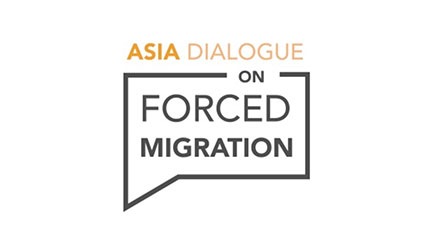There are many ways that the next Australian government could work to implement better human rights policy in the Asia Pacific. Phil Lynch continues his policy recommendations
Empowering Communities and Supporting NGOs
In JCFADT’s view, the Australian Government should do more to support the ‘vital work’ of NGOs and civil society in the region, including by establishing a scholarship fund for Asia-Pacific human rights defenders. This is positive, but should be supplemented by increasing Australian funding to NGOs in the region to protect human rights at the grassroots level.
- While the recent expansion of Australia’s Human Rights Grants Scheme – from about $1 million to $3 million per year – is welcome, the scheme generally provides short-term, project-based funding only. The scheme should be expanded in amount (in the Netherlands, for example, the government’s Human Rights Fund will distribute €27.5 million in 2010) and duration, to provide longer-term, recurrent support to enhance the effectiveness and secure the sustainability of human rights NGOs.
- Recognising the need to build human rights capacity in the Pacific, the Australian Government should fund annual workshops which bring together key human rights and civil society organisations and actors from across the Pacific region. Such workshops could provide a forum to facilitate dialogue, networking, capacity building and collaboration between NGOs across the region, and to work constructively with governments to promote human rights standards and institutions.
Human Rights Treaty Ratification and Implementation
JCFADT recommended that Australia adopt a ‘targeted approach’ to promote human rights treaty ratification and implementation in the region, particularly the Pacific. The Pacific has the lowest human rights treaty ratification rate of any global region, notwithstanding that the core human rights treaties provide clear, comprehensive, internationally accepted principles that can enhance governance and improve accountability.
- As a party to the significant majority of the core UN human rights treaties, and an active participant in the associated UN treaty body review processes, Australia should provide Pacific states with technical and financial support to ratify, implement and report under the core human rights treaties and thereby improve human rights and democracy on the ground.
- Australia should also resource Pacific Island NGOs to further engage with the UN human rights system, including through funding.
Australia’s capacity and ability to promote human rights abroad is inextricably linked with our domestic human rights situation.
- Australia is not party to the International Convention on the Protection of the Rights of All Migrant Workers and their Families or the International Convention for the Protection of All Persons from Enforced Disappearance, despite their significance in the Asia-Pacific. Australia should sign and ratify these conventions and encourage other Asia-Pacific states to do the same.
- Further, consistent with our commitment to the universality and interdependence of all human rights, together with accountability for human rights breaches, Australia should expedite ratification of the Optional Protocol to the International Covenant on Economic, Social and Cultural Rights and theOptional Protocol to the Convention against Torture.
Strengthening Human Rights Institutions
National and regional human rights institutions play a critical role in the promotion and protection of human rights.
- Australia should seek to strengthen and secure the presence and independence of the UN High Commissioner for Human Rights in the region, including by increasing its voluntary contribution to the Office of the High Commissioner for Human Rights.
- Australia should continue and expand its technical and financial support for the establishment and operation of independent, effective, ‘Paris Principle’-compliant national human rights institutions in the region, including through the Asia Pacific Forum of National Human Rights Institutions.
Parliamentary Engagement with Human Rights
Parliamentary understanding of engagement with human rights is essential to the effective institutional protection of human rights. Further, as JCFADT noted, ‘Parliaments in representative and democratic societies, such as Australia, have a responsibility to assist the international community to help strengthen parliamentary systems and protect fundamental human rights…In particular, it should be incumbent on parliamentarians to share their knowledge and expertise in the areas of human rights’. Despite this, the Joint Parliamentary Human Rights Committee, proposed under the Human Rights (Parliamentary Scrutiny) Bill 2010, is not mandated to contribute to or participate in the parliamentary human rights dialogue in the region.
- The Australian Parliament should provide the Joint Parliamentary Human Rights Committee with a mandate to consider not only domestic, but also regional and international human rights issues, and to convene and participate in regional inter-parliamentary human rights dialogues.
JCFADT further noted that ‘Parliaments from around the world have established different oversight mechanisms’ to ‘monitor national and international human rights obligations and provide suggestions and recommendations on how to best promote and protect human rights standards’. Despite this, the Australian Parliament itself does not play any coordinated, institutionalised role in monitoring, overseeing and following up on the implementation of recommendations and decisions of international human rights mechanisms.
- The functions of the proposed Joint Parliamentary Human Rights Committee should be expanded to include the power ‘to monitor and report on the implementation of the Concluding Observations, Recommendations and Views of UN treaty bodies and the Recommendations of the Special Procedures and the Universal Periodic Review of the UN Human Rights Council’. This would enhance the Australian Parliament’s capacity, and assist to discharge its obligation, to play an active role in monitoring, overseeing and following up on the implementation of recommendations and decisions of international human rights mechanisms.
Human Rights Envoys and Ambassadors
JCFADT recommended that the Australian Government appoint a Special Envoy for Regional Cooperation on Human Rights. This Envoy would be tasked to consult with Asia-Pacific governments and civil society and then report back to the Government on how Australia can best support human rights in the region.
- The Australian Government should appoint a Special Envoy for Regional Cooperation on Human Rights.
- The Australian Government should also appoint a permanent, full-time Australian Human Rights Ambassador. Human Rights Ambassadors in leading states such as the Netherlands, Norway and Sweden already assist to promote a coordinated and coherent approach to human rights across all areas of foreign policy. An Australian Human Rights Ambassador could play a valuable role in the region and internationally on an ongoing basis.
This is the second of two posts by Phil Lynch on human rights policy in the Asia Pacific. Read the first here.
 More Than Luck is a collection of ideas for citizens who want real change edited by Mark Davis and CPD Executive Director Miriam Lyons. A to-do list for politicians looking to base public policies on the kind of future Australians really want, More Than Luck shows what’s needed to share this country’s good luck amongst all Australians – now and in the future. Click here to find out more. Like what you’ve read? Donate to help make good ideas matter.
More Than Luck is a collection of ideas for citizens who want real change edited by Mark Davis and CPD Executive Director Miriam Lyons. A to-do list for politicians looking to base public policies on the kind of future Australians really want, More Than Luck shows what’s needed to share this country’s good luck amongst all Australians – now and in the future. Click here to find out more. Like what you’ve read? Donate to help make good ideas matter.



